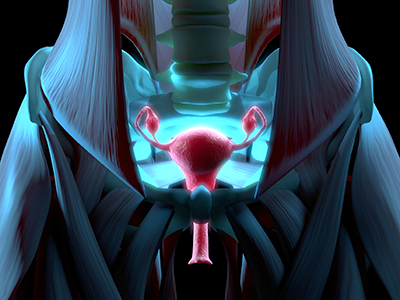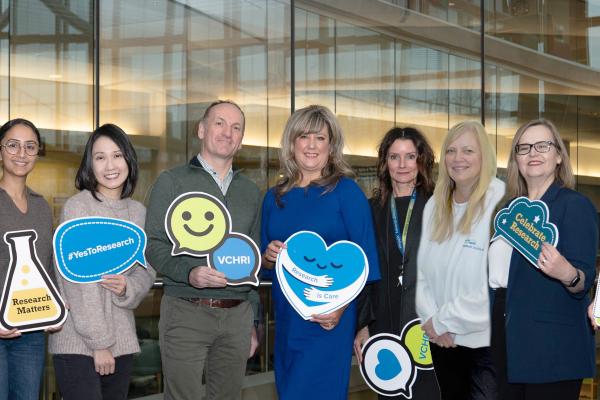
Research into ovarian cancer could lead to potential life-saving measures.
Ovarian cancer is the fifth most common cancer for women—but one of the most deadly. In 2017, approximately 2,800 Canadian women were diagnosed with ovarian cancer1, and an estimated 1,800 lost their lives to the disease. While survival rates are slowly increasing, early diagnosis and treatment dramatically improves a woman’s chance of survival.
Vancouver Coastal Health Research Institute researcher Dr. David Huntsman is investigating prevention and treatment strategies for clear cell carcinoma of the ovary, the second most common type of ovarian cancer. He and his research team recently received a $1.25-million 2017 Impact Grant—one of Canada’s premier cancer research grants—from the Canadian Cancer Society to support their work.
“We need to do a better job of developing interventions that prevent ovarian cancers and new treatments that save women’s lives.”

However, if it spreads beyond the ovaries, clear cell carcinoma does not respond well to current treatments, which is why there is a desperate need for more research.
With the support of the grant funds, Huntsman and his co-investigators are the first to attempt to connect all the dots between endometriosis associated mutations that lead to ovarian cancers, and interventions that could stop this from occurring. Armed with this new information, they plan to identify new methods for diagnosing and treating the disease.
“The best thing you can do for a patient is to prevent the disease. The second best is to cure it.”
Unlike most cancer types, the vast majority of ovarian cancers originate from cells that don’t usually exist in the ovary. This raises the question of whether or not the cancerous mutations begin before such cells arrive in the ovaries—something Huntsman and his research team are investigating. Knowing the answer to this question could lead to better screening procedures and earlier and potentially life-saving interventions.
Building on research of the past for new ovarian cancer interventions
A major shift in the understanding of how ovarian cancers form occurred 20 years ago. Researchers discovered that most ovarian cancers start in the fallopian tubes or are associated with endometriosis—an often painful condition where the tissues that line the uterus grow outside of the uterus. However, researchers have yet to identify the exact causes of these cancers, which is a necessary step towards finding better prevention and treatment strategies.
“While 20 per cent of women who get ovarian cancer have a genetic mutation that puts them at greater risk of developing the disease, 80 per cent do not.”
Improved genetic testing could make it easier to screen for the 80 per cent of ovarian cancer patients without a genetic predisposition.
“If we better understand the connection between endometriosis and ovarian cancer, we could then determine which women with endometriosis are actually at risk and identify how best to treat them,” says Huntsman. “This is important, as the vast majority of women with endometriosis will not get ovarian cancer and women who we determined are not at risk would be spared unnecessary medical appointments and procedures, as well as distress.”

Huntsman has already helped change the global understanding of ovarian cancer. His work has supported findings that show that ovarian cancer is not just one disease but several. He helped identify key mutations that underpin many ovarian cancers and co-developed the world’s first comprehensive ovarian cancer prevention program.
Finding better prevention and treatment strategies for ovarian clear cell carcinoma is among Huntsman’s latest pursuits, and one that will likely have life-changing results for the many women confronted with the disease.


